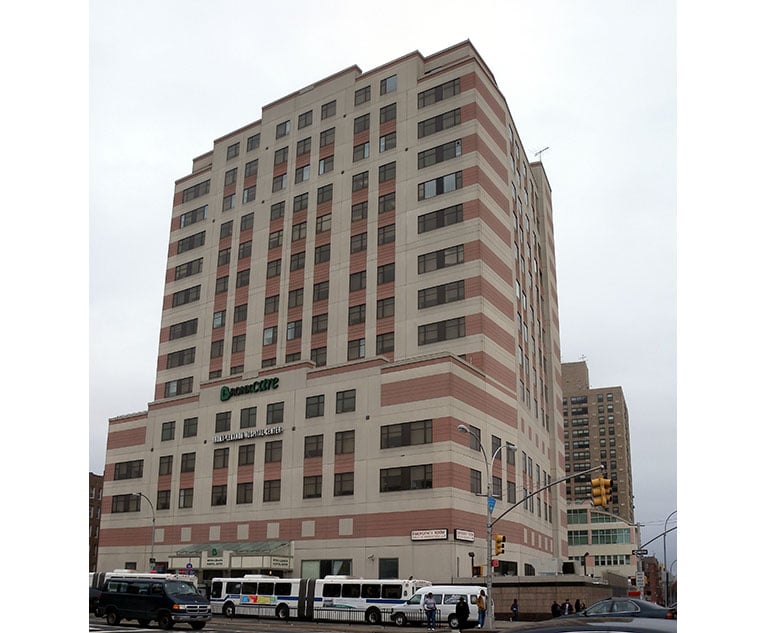 The top court was not persuaded by the plaintiff's argument that the case did not qualify for workers' compensation due to the absence of a "nexus" between the victim's injuries and the person who caused them. Pictured above is the Bronx-Lebanon Hospital where the shooting took place. (Credit: Wikimedia)
The top court was not persuaded by the plaintiff's argument that the case did not qualify for workers' compensation due to the absence of a "nexus" between the victim's injuries and the person who caused them. Pictured above is the Bronx-Lebanon Hospital where the shooting took place. (Credit: Wikimedia)
A multijurisdictional matter involving a doctor's injuries from a mass shooting at Bronx-Lebanon Hospital in 2017 was resolved by New York's top court on Thursday, with the seven jurists in accord in remanding the matter to the state workers' compensation board.
Recommended For You
Want to continue reading?
Become a Free PropertyCasualty360 Digital Reader
Your access to unlimited PropertyCasualty360 content isn’t changing.
Once you are an ALM digital member, you’ll receive:
- Breaking insurance news and analysis, on-site and via our newsletters and custom alerts
- Weekly Insurance Speak podcast featuring exclusive interviews with industry leaders
- Educational webcasts, white papers, and ebooks from industry thought leaders
- Critical converage of the employee benefits and financial advisory markets on our other ALM sites, BenefitsPRO and ThinkAdvisor
Already have an account? Sign In Now
© Touchpoint Markets, All Rights Reserved. Request academic re-use from www.copyright.com. All other uses, submit a request to [email protected]. For more inforrmation visit Asset & Logo Licensing.







